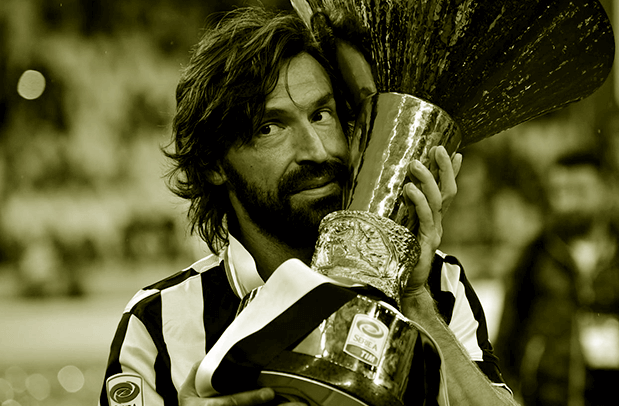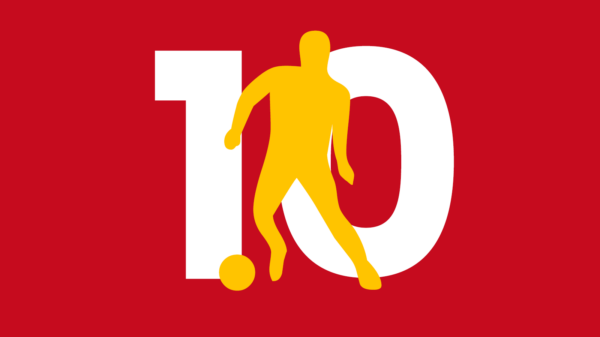When Celtic ran away with the Scottish Premiership title last season, they became the champions of Scotland for the fourth year running; incidentally, the Bhoys achieved this feat for the first time since the 1960s’ glory-strewn Jock Stein days. This overwhelming dominance of Celtic in Scottish football is only a microcosm of the situation in European football in recent years. Abhijit Bharali takes a look at the title races in the Europe’s major leagues over the past 5 years.

Title races fail to last the distance; there often is a domineering force that outdoes other teams and by the time the finish line comes to sight, only one horse strolls comfortably to the title.
A glance at the major European football leagues suggests a trend, which points towards the increasingly one-sided title races in recent years. An average of nine points separated the first-placed team from the second-placed team in the five major leagues (Premier League, La Liga, Bundesliga, Serie A, Ligue 1) while the champions in each league won the title with three games to spare, on an average.
The Predictable Liga
La Liga in Spain was seemingly an open battle till the season’s end with two points separating the winners and the runners-up, a statistic which has little face value given Barcelona ended their league campaign 14 games unbeaten from February en route to a second league, cup and Champions League treble in seven seasons.
Barcelona’s closest challengers, Real Madrid, dropped ten points in the same 14 game period, resulting in a slump off the summit from which they never quite recovered.
One of the reasons for the Barcelona-Real Madrid hegemony in La Liga is the uneven distribution of broadcasting rights in Spain. The big two eat up a huge 41.6% of the total TV money that comes in annually, from the current deal that runs until 2022. Add to that the massive global brands (two most valuable football clubs in the world) the two giants represent, which completely obliterates their domestic competition.
In simple terms, for any team other than Barca-Real to win the Liga, they must defy logic which is why Atletico Madrid’s title win in 2013/14 was a massive achievement, although third-party ownership issues helped their title tilt (a discussion for another day).
Bayern Munich: Killing Competition?
Uneven TV revenue distribution isn’t a big concern in Germany where Bayern Munich are undoubtedly the biggest players. The Bundesliga distributes the broadcasters’ money that comes in at even share where the income disparity between the top and the bottom club is in the ratio of 2½:1, which is considerably lesser than La Liga’s 11:1. However, Bayern’s huge income from commercial deals and sponsorships, match day revenue and prize money from sporting success added to the media revenue makes them one of the richest clubs in world football.
Last season, the Bavarians completed a treble of league titles in three years. On an average, 18 points have separated them from the second-placed team in the last three seasons. 18 points! That is six wins more than their closest competitors domestically; a stat that emphatically asserts the fact Bundesliga’s title race is a one horse non-event.
The Reds won the title with four games to spare in 2014/15, a record seven to spare in 2013/14 and six in their treble winning 2012/13 campaign. That, on an average, means Bayern would have won the league without even playing five full games a season in the last three campaigns.
Bayern’s propensity to buy the best players from their rivals has somewhat killed the competition although they aren’t exactly the sharks at capturing local talents contrary to popular belief. However, one instance is their purchases of Mario Gotze and Robert Lewandowski from Borussia Dortmund in consecutive summers which significantly weakened their rivals, while consolidating their own place at the top.
Italian Football Needs Quality Overhaul
Two clubs that have matched Bayern’s domestic success over the past three seasons are Italian outfit Juventus and French side Paris Saint-Germain. While Juventus’ superiority has coincided with the decline of their rivals, and consequently Italian football, PSG’s three consecutive Ligue 1 titles have brought French football into limelight. The fact French football comes under discussion here as one of the major leagues despite the country being below Portugal in the UEFA rankings is a pointer to the global audience Ligue 1 attracts these days.
In the past two seasons, Juve’s closest challengers to the league title, AS Roma, finished exactly 17 points behind the Bianconeri, which points to the routineness of the Turin giant’s title coasts. The Old Lady have romped comfortably to the title with three games, on an average, to spare over the past three seasons.
The status quo is unlikely to change, clear last season when Roma manager Rudi Garcia lamented the strength of Juventus and his side’s incapability to compete with the champions by quoting: “Looking over the season, I have to say we won our tournament, because Juve are basically in their own League.”
Did Juventus’ financial muscle force Roma last season to a run of 11 games right after the winter break where they dropped 19 points out of a possible 33? The Giallorossi had gone out and spent more than Juve last season (€100m v €46m), a fact which proves Garcia’s naivety in the light of his team’s struggles.
Title challenges are not borne out of inconsistency like Roma’s; a reality for the Italian capital outfit, or any other team in Serie A, that they are likely to remain stuck behind the Turin giants in the foreseeable future. Which means satisfying neutral fans’ wants of multi-dimensional title challenges is highly unlikely.
The Premier League: Is It Entertaining Enough?
An alternative for the title-race-starved masses would be switching to the Premier League in England, where, despite all the flaws, the battles for the prize have been fairly engrossing affairs. Until, of course, Jose Mourinho secured Chelsea’s first title triumph in five years in 2014/15 with the swagger that has won him league titles at various clubs in six of the last ten seasons.
Manchester City makes a case in point here about being poor defenders of Premier League titles. The Sky Blues relinquished their first ever title defence to local rivals Manchester United with five games of the 2012/13 season to spare, and kept with their trend by letting Chelsea run away with the silver trophy last season with three games to spare.
But Manchester City’s two title wins in 2011/12 and 2013/14 were decided by fine margins worthy of catching fans’ fancy. The Eastlands outfit spent just 11 days as league leaders in the 268-day 2013/14 season, seeing off Liverpool’s unlikely challenge to win the title on the final day of the season. And Sergio Aguero’s stoppage time winner that decided which way the league title headed in the 2011/12 season secured one of the most dramatic title races in recent memory.
The question being asked is whether football title races have gotten boring, and the answer to it is probably a resounding yes. However, perspectives may differ, but the underlying, general belief is title races are badly in need of facelifts.
There are divisive opinions as to whether teams like Barcelona and Bayern Munich’s rise as football super clubs bodes well for the game, since they contribute to more compelling latter stage games of the Champions League.
While others are keen to point to the weaknesses of the big clubs’ domestic competitors, finding value in the cliched “you can only beat what’s in front of you” phrase. Garcia’s comments on Juventus’ dominance highlight an attitude most modern managers today carry: the siege mentality towards the hegemony, which tends to attract more pressure, and in turn affects performances. That is only one aspect, of course.
Title races are the essence of club football; they define the nine-month-long leagues. With the super clubs leaving the competition struggling in their wake, that very essence is under threat. European football entertains a massive worldwide audience year after year, season after season.
While expectations are that the global bandwagon of European football will attract more and more passengers in the years to come, a throwback to the times when leagues happened to be more than a parade will be welcomed with arms wide open.
Written by Abhijit Bharali
- Analysing Belgium’s tactical approach at the 2018 World Cup - June 17, 2018
- Tactical Analysis : Sevilla 0-0 Villarreal: Villarreal’s off-the-ball discipline denies Sevilla - February 8, 2017
- Indian Super League: Indian Team of the Tournament (League Phase) - December 12, 2016






























































